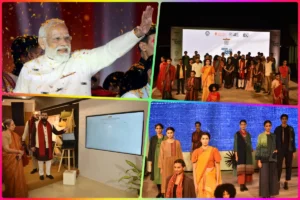
Justin Trudeau, the prime minister of Canada and Prime Minister of India
In New Delhi: Justin Trudeau, the prime minister of Canada, has stated that Ottawa is not aiming to “escalate” the conflict with India. His administration has stated that “private” discussions are being held in order to keep a “strong diplomatic footprint” in India.
The Financial Times claimed that India wants 41 out of the 62 Canadian ambassadors to leave the country, which prompted Trudeau to claim that the Indian government was involved in the murder of a Khalistani terrorist. Trudeau was speaking to the media at the time.
Canada not willing to escalate the matters
The report was not confirmed by the Canadian prime minister. When asked if Canada will ask India to recall its diplomats, he reportedly responded, “We’re not looking to escalate, as I’ve said, we’re going to be doing the work that matters in continuing to have constructive relations with India through this extremely difficult time.”
Speaking on the same issue, Canadian foreign minister Melanie Joly said Ottawa believes in having a “strong diplomatic footprint” in India. “We are in contact with the government of India. We take Canadian diplomats’ safety very seriously, and we will continue to engage privately because we think that diplomatic conversations are best when they remain private,” she was quoted as saying by Global News.
“In moments of tensions – because indeed there are tensions between both our governments more than ever – it’s important that diplomats be on the ground, and that’s why we believe in the importance of having a strong diplomatic footprint in India,” she added.
Hardeep Singh Nijjar’s killing was the root cause of tussle between Canada and India
The Khalistani terrorist Hardeep Singh Nijjar was killed in British Columbia in June by masked assailants. The Unlawful Activities (Prevention) Act listed the 45-year-old as a terrorist.
A couple of weeks back, Trudeau alleged India’s role in Nijjar’s killing. “Canadian security agencies have been actively pursuing credible allegations of a potential link between agents of the Government of India and the killing of a Canadian citizen, Hardeep Singh Nijjar,” he said, adding, “Any involvement of a foreign government in the killing of a Canadian citizen on Canadian soil is an unacceptable violation of our sovereignty.”
Also Read: Elon Musk’s Ex-Girlfriend, Sues Him For Parental Rights
The controversy between Canada and India began here
This sparked a diplomatic crisis. The claims were branded as “absurd” and “motivated” by India. Senior diplomats were then dismissed from both sides and travel warnings were issued as a result. The Indian government had previously called for “parity” in the number and rank of diplomats sent by each nation, though it has not yet replied to the Financial Times report asking Canadian officials to leave.
Shortly after his visit to New Delhi for the G20 conference, Trudeau launched his major criticism of India. Throughout the summit, India sent a clear message, expressing “strong concerns about the continuing anti-Indian activities of extremist elements in Canada.” On the eve of the conference, Prime Minister Narendra Modi voiced his worries. Trudeau responded by stating that his nation “will always defend freedom of expression”. It’s crucial to keep in mind that the actions of a select few do not speak for Canada, he added.
US enters the scene
The US has insisted that further investigation is necessary on the Canadian government’s allegations. According to John Kirby, Coordinator for Strategic Communications at the National Security Council in the White House, the issue was discussed during the meeting between External Affairs Minister S. Jaishankar and National Security Advisor Jake Sullivan last week. We’ll undoubtedly leave discussion of their bilateral relationship to those two nations.
“We’ve been clear, these allegations are serious, they need to be fully investigated and of course, as we’ve said before, we urge India to participate actively in that investigation,” Kirby added. According to a report in The Washington Post, Canadian officials had sought public condemnation of Nijjar’s murder from allies ahead of the G20 summit, including the US, but found them reluctant.
To read more such news, download Bharat Express news apps





















